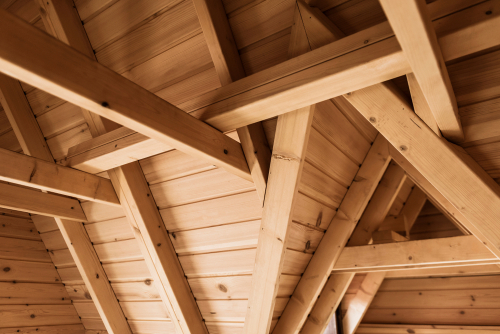When embarking on a construction project, one of the most critical decisions you’ll face is selecting the right type of wood. The choice of wood can significantly impact the project’s durability, appearance, and overall success. With numerous wood options available, it’s essential to understand the characteristics of different wood types and their suitability for various applications. In this article, we’ll guide you through the process of choosing the ideal wood for your construction project.
1. Consider the Project’s Environment:
The first step in choosing the right wood is to assess the project’s environment. Determine whether the construction will be indoors or outdoors, and the specific conditions it will be exposed to. For outdoor projects, the wood needs to withstand weather elements such as rain, sunlight, and temperature variations. In such cases, opting for a durable and weather-resistant outdoor engineered wood solution could be a wise choice.

2. Understand Wood Types:
Familiarize yourself with different wood types to make an informed decision. Hardwoods, like oak and teak, are known for their strength and durability, making them suitable for heavy-load structures like beams and posts. On the other hand, softwoods, such as pine and cedar, are more affordable and often used for framing and cladding. Each wood type has unique properties, so make sure to select one that aligns with your project’s requirements.
3. Durability and Rot Resistance:
For outdoor projects, resistance to rot and decay is crucial. Some wood species naturally have higher resistance to rot, while others may require chemical treatments to enhance their durability. Cedar and redwood, for instance, are naturally rot-resistant and can withstand outdoor conditions without the need for extensive chemical treatments. If you’re looking for an outdoor engineered wood solution, consider researching composite wood products, which often have excellent resistance to rot and decay.
4. Strength and Load-Bearing Capacity:
Consider the load-bearing requirements of your construction project. Structural elements like beams, joists, and columns need to be strong enough to support the intended weight. Hardwoods are generally stronger than softwoods, but they also tend to be more expensive. If you need a combination of strength and cost-effectiveness, engineered wood products like laminated veneer lumber (LVL) and glued-laminated timber (glulam) can be excellent alternatives.
5. Appearance and Aesthetics:

The visual appeal of the wood can be a significant factor, especially for indoor projects where the wood will be visible. Different wood species have distinct grain patterns, colors, and textures. Some may have a more rustic look, while others offer a sleek and modern appearance. Consider the overall aesthetic you want to achieve and choose a wood type that complements your design vision.
6. Sustainability and Environmental Impact:
With environmental consciousness on the rise, consider the sustainability and environmental impact of the wood you choose. Opting for responsibly sourced wood from certified forests ensures that you’re contributing to sustainable practices. Additionally, some engineered wood products are made from recycled or reclaimed materials, making them an eco-friendlier choice.
7. Maintenance Requirements:
Wood requires maintenance to prolong its lifespan and keep it looking its best. Some woods, like tropical hardwoods, need regular sealing and staining to protect them from the elements. Conversely, pressure-treated woods might need periodic re-treatment to maintain their resistance to decay. If you prefer a low-maintenance outdoor engineered wood solution, composite decking or siding could be a viable option, as they often require minimal upkeep.
In conclusion, selecting the right wood for your construction project involves careful consideration of factors like the project’s environment, wood types, durability, strength, aesthetics, sustainability, and maintenance requirements. For outdoor projects, an outdoor-engineered wood solution could be a smart choice due to its weather resistance and durability. By making an informed decision, you can ensure that your construction project stands the test of time while exuding natural beauty and charm.



